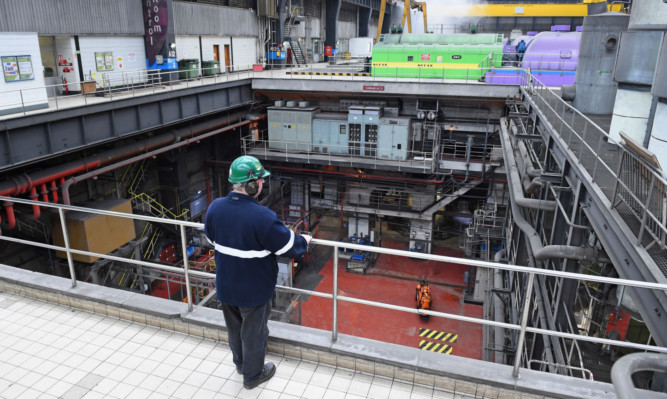In this column last week I challenged former Muirfield chairman Thomas John Stodart to come out from the shadows.
I urged him to pick up the phone to give his version of events that led to one of the city’s biggest construction firms going to the wall in such tragic fashion.
Seven days on and there has been no call.
I can’t say I am surprised given the wall of silence that has been maintained by the entire Muirfield management since the firm’s untimely demise earlier this month.
But I remain firmly of the opinion that a refusal to give Muirfield’s loyal workforce the answers they deserve about why their company crashed is a disgrace.
These are the people who made Muirfield a success in the first place and who have now been cruelly cast adrift.
Through no fault of their own they now find themselves on their own, fighting to keep the wolves from the door.
But still not a word from Mr Stodart, or Muirfield’s chief executive officer Richard Gallacher, or the recently appointed managing director Lesley McCourt.
Now, just to be clear, I fully accept that businesses can and do fail. In fact it happens with all-too-depressing regularity and for myriad reasons.
But Muirfield is a collapse like no other.
It was bone-jarring in its suddenness and came at a time when the firm was pushing ahead with a number of seemingly lucrative contracts in Dundee and beyond.
Perhaps the best yardstick in these situations is the reaction of the workers and the wider trade to what has happened.
I don’t think it is an exaggeration to say Muirfield’s demise left many people completely shellshocked in an industry where the gossip grapevine is strong and everyone knows each others’ business.
In the days since, there have been dozens of theories expressed both publicly and privately about why Muirfield went under.
And there have been eyes raised at why a business with a strong order book and a highly skilled workforce could not be sold from administration as a going concern.
So questions remain.
And, Mr Stodart, many workers and their families still want to hear your answers.
* The likely closure by March next year of Longannet coal-fired power station is an alarming development.
More than 1,000 jobs depend on the facility directly and indirectly, and the decision by National Grid to overlook it for a
£15 million voltage control contract it was awarded to SSE’s Peterhead station could see those roles go up in smoke.
Long before yesterday’s decision the end-game for Longannet was playing out.
It is a significant polluter, it is expensive to run, and upgrading it to comply to modern standards in the energy production sector is by no means a cheap option for operator ScottishPower.
So for a long time it has been a case of sticking-plaster solutions for Longannet and managing the grand old lady’s decline.
But to close it four years early, on the loss of what is a relatively small contract in energy terms, seems wrong. Perverse even.
From where I am standing Longannet’s fate appears to be morphing into a political football which Holyrood and Westminster will use to trade blows.
EU environmental legislation and carbon taxation have been major contributory factors in Longannet’s situation.
However, the transmission charging regime which places Longannet at an immediate operational disadvantage in comparison with other power producers near major conurbations south of the border is a nonsense and urgently needs reformed.
I agree with the SNP on that.
But the fate of hundreds of workers in Fife and the Forth Valley whose livelihoods depend on Longannet must be kept foremost in everyone’s minds as events play out in the coming months.
The closure of one of Europe’s largest power stations is too significant an issue to descend into political point-scoring.
